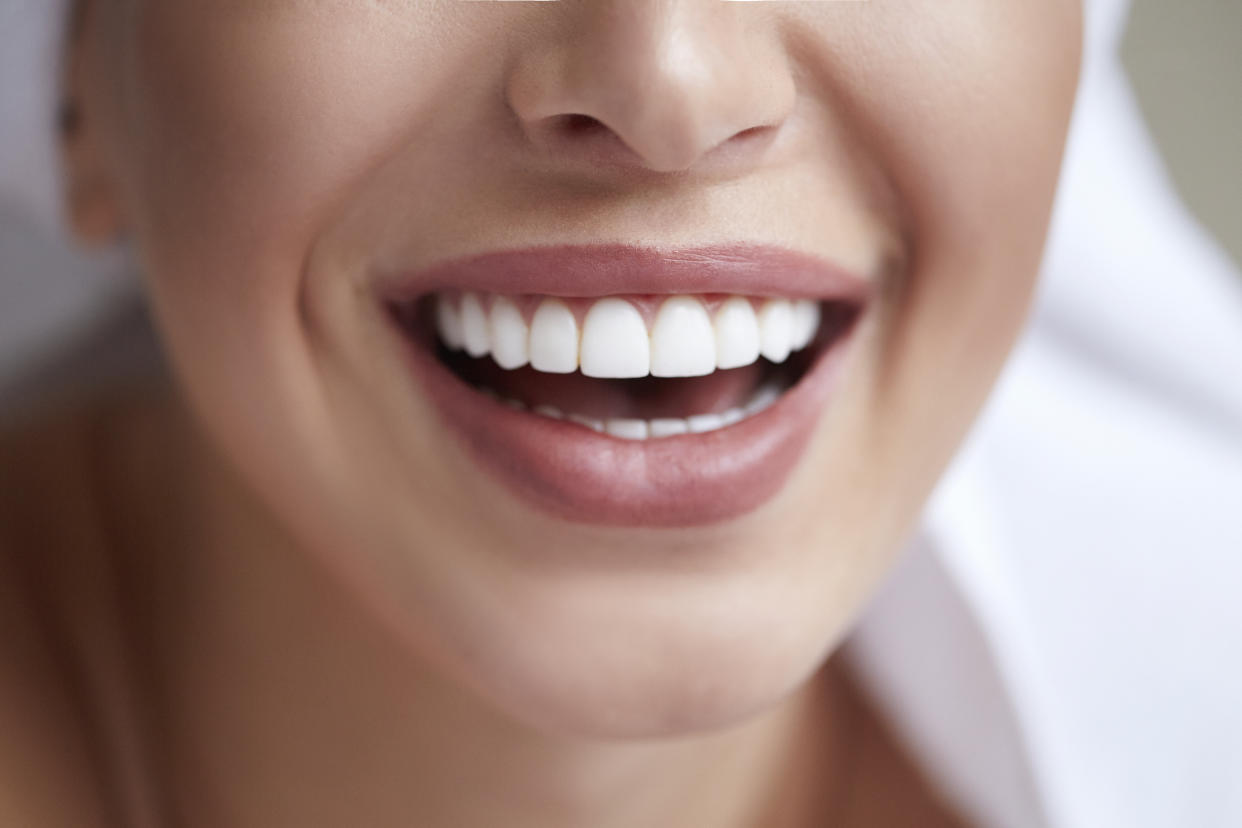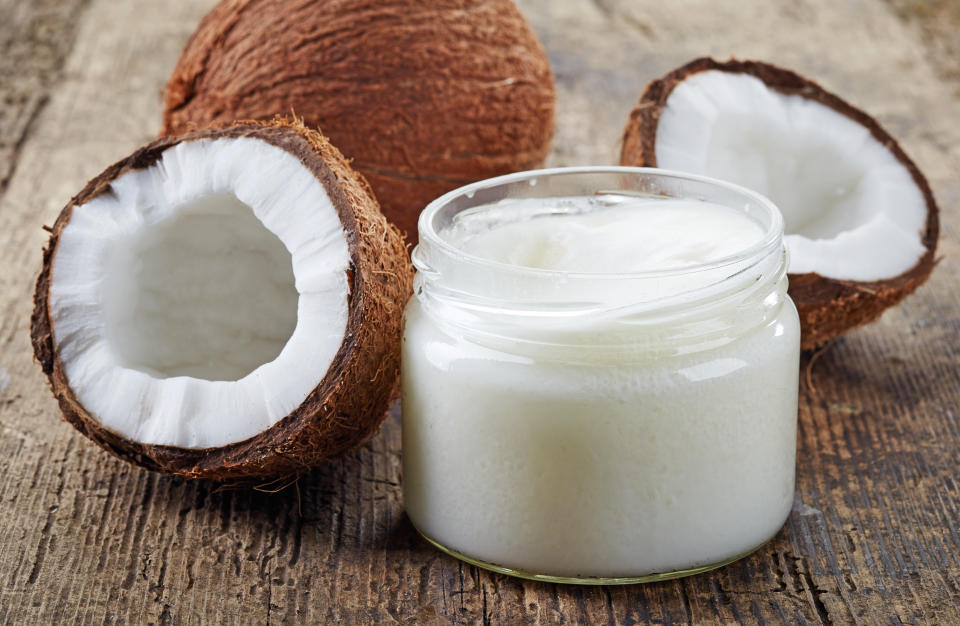6 'health trends' that are damaging your teeth

People will go to extreme lengths to get a dazzling Hollywood smile.
With veneers and professional whitening treatments being expensive, many turn to homemade concoctions to help their gnashers sparkle.
One expert worries, however, the “advice” of internet influencers and self-proclaimed health “gurus” may do more harm than good.
READ MORE: Millions all over England struggle to see an NHS dentist
“When it comes to seeking out information about our health, we should feel confident we are getting advice that is not only correct, but also won’t cause us harm,” Anna Middleton, founder of London Hygienist, told Yahoo UK.
“Unfortunately in this day and age, oftentimes reliable sources are drowned out by the more non-scientific voices, which can come in the form ‘influencers’ like bloggers and celebrity endorsements.
“I’d rather get my medical information from a trained professional and not someone pretending to be a pro just because they have 10,000 Instagram followers.
“As a trained dental professional, I thought I’d call out some of these fads to make sure everyone understands that they are just that - fads.”
Lemon water
The health “elite” swear by hot water with a slice of lemon to boost their immune system, stay svelte and get energised.
“The claim is citrus fruits in water will provide ‘detoxification’ benefits,” Ms Middleton said.
“The only things that remove any by-products of normal metabolism - or ingested chemicals from drugs, medicines or alcohol - are the liver and kidneys.
“Beyond these two vital organs, nothing can ‘detoxify’ your body.”
READ MORE: Tooth decay is worse today than in the 17th century
While the drink may sound like a refreshing start to the day, lemon is extremely acidic and effectively dissolves enamel.
“We’re seeing an increase in the number of patients with permanent and irreversible erosion of the tooth enamel, which leads to sensitivity, yellowing and increased risk of decay,” Ms Middleton said.
“So in an attempt to try and be ‘healthy’, people are actually causing damage to their oral health and not even reaping any actual benefits.”
Coconut oil pulling
Advocates allege the ayurvedic practice of swilling coconut oil around the mouth for up to 20 minutes a day helps the body “detoxify”, treats gum disease and whitens teeth.
“Gum disease needs be identified and treated by a dental professional, and each patient needs a tailored oral hygiene regime,” Ms Middleton said.
“Oil pulling alone is not going to help.”
Gum disease is defined as swollen, sore or infected gums, which may bleed when brushed or trigger bad breath, according to the NHS.
Untreated, it can develop into periodontitis, which affects the tissues that support teeth.
Over time, the jaw bone may become damaged, with teeth eventually falling out.
“The biggest danger for people doing this is replacing your existing oral hygiene routine with coconut oil pulling,” Ms Middleton said.
“Brushing twice a day along the gum line and using floss or interdental brushes will remove plaque and food debris from your teeth, helping to prevent dental decay, gum disease and other oral health issues.
“People who choose to use coconut oil pulling are putting their dental health at risk.”

‘Healthy’ dried fruit
Many like to sprinkle dried fruit over their Bircher muesli breakfast or reach for raisins to tide them over until dinner time.
“The reality is snacking on things like dried fruit increases the frequency of consuming sugar and can lead to dental decay,” Ms Middleton said.
“Dried fruit gets stuck in the pits and fissures of teeth, which are stagnation areas and prime ground for decay to be initiated.”
Apple cider vinegar
Supermodels like Miranda Kerr are advocates of adding a splash of probiotic-rich apple cider vinegar to their water.
“Acetic acid, a compound found in apple cider vinegar, has been cited in some studies as the active ingredient that helps with weight loss,” Ms Middleton said.
“However, excessive consumption over a prolonged period of time can cause irreversible erosion to enamel.”
Once enamel is gone, the underlying yellow-tinged dentin becomes visible.
Charcoal toothpaste
A staple in a millennial’s bathroom, charcoal’s porous structure is said to have “detoxifying” properties.
“Recently there have been claims one should use charcoal toothpaste to brighten your smile, but there has been no evidence to prove its effectiveness in tooth-whitening,” Ms Middleton said.
READ MORE: Gap toothed trend led to an increase in reversed dental work
Charcoal’s abrasive consistency may remove some stains, however, the damage likely outweighs any aesthetic benefits.
“While it may lift light surface staining, the truth is, most so-called whitening toothpastes can be abrasive and damage the enamel,” Ms Middleton said.
“Charcoal may even contribute to negative aesthetic effects, as the particles can become embedded in cracks in the enamel or restoration margins.”
Fluoride-free toothpaste
Fluoride has gotten a bad rep over the past few years.
Concerns over links to cancer, dementia and diabetes have triggered a surge in fluoride-free toothpastes.
According to the Centers for Disease Control and Prevention, “many” studies have “proven the safety and benefits of fluoridated water”.
Since it was added to drinking water in the US 75 years ago, Americans have “enjoyed the benefits of better dental health”.
Fluoride toothpastes deposit the mineral in enamel, replacing that broken down by acidic food.
“There is an increasing movement of people opting for fluoride-free products, despite the industry using it for decades due to its effectiveness,” Ms Middleton said.
“Fluoride is essential in the formation of strong enamel, and there is no need to worry about exposing yourself to it; the amount of fluoride in toothpaste is safe because you’re not ingesting it.”


